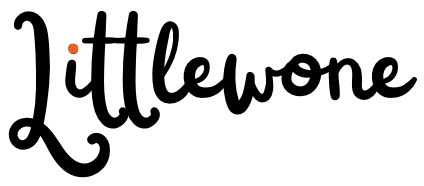Welcome, dear parents and soon-to-be parents, to our blog post all about unisex baby names. As you embark on the exciting journey of naming your little one, you may have come across the growing trend of unisex names. These special names, that can be used for both boys and girls, have become increasingly popular in recent years and for good reason.
Unisex names offer a unique and beautiful way to break free from traditional gender norms and allow your child to define their own identity. They also offer a wider range of options for parents who are looking for a name that is not limited by gender.
The purpose of this blog post is to explore the world of unisex names and provide you with all the information you need to make an informed decision when choosing a name for your little one. From the definition of unisex names to the pros and cons, we will cover it all. By the end of this post, you will have a better understanding of unisex names and how they can be a perfect fit for your baby. So sit back, relax, and let’s dive into the world of unisex baby names together.
Definition of Unisex Names

A unisex name is a name that can be given to both a boy or a girl. These names do not have a traditional gender association and can be used for any baby regardless of their gender. It’s important to note that unisex names are different from gender-neutral names. Gender-neutral names are names that don’t have a gender association but are often considered more suitable for one gender over the other. Unisex names, on the other hand, can be used for any gender.
Choosing a unisex name for your baby can be a great way to give your child the freedom to define their own identity and not be limited by traditional gender norms. It also offers a wider range of options for parents who want to choose a name that is not limited by gender.
History of Unisex Names

Unisex names have been around for centuries, but their popularity has fluctuated throughout history. In the past, unisex names were more commonly used for boys, but as society’s views on gender have evolved, so have the names we choose for our children.
In the 1960s and 1970s, a movement towards gender equality brought about a surge in the popularity of unisex names. Parents began to choose names that weren’t limited by traditional gender norms, as a way to break free from societal expectations. This trend continued to grow in the following decades, and now unisex names are more popular than ever.
Cultural and societal factors have played a big role in the rise of unisex names. As society becomes more accepting of non-binary and gender non-conforming individuals, parents are becoming more open to choosing names that don’t conform to traditional gender stereotypes.
It’s also worth noting that some unisex names have been traditionally used in certain cultures or regions. For example, Jamie, Morgan, or Riley are popular unisex names in the United States, but might not be common in other countries.
Overall, the history of unisex names reflects a growing acceptance and celebration of diversity and breaking free from traditional gender norms.
Popular Unisex Names

In recent years, we have seen a growing trend of parents choosing unisex names for their babies. Some of the most popular unisex names include:
- Avery: which means “ruler of the elves”
- Riley: which means “courageous”
- Jordan: which means “flowing down”
- Taylor: which means “tailor”
- Jamie: which means “supplanter”
- Alex: which means “defender”
- Casey: which means “brave in battle”
- Morgan: which means “circling sea”
- Hayden: which means “son of haymaker”
- Dakota – with means “friend” or “friendly”
These names have been traditionally used for both boys and girls and have become increasingly popular in recent years. According to the Social Security Administration, Avery and Riley are among the top 100 most popular names for both boys and girls. Jamie, Alex, and Taylor are also among the top names for both genders.
Choosing a popular unisex name for your baby can be a great way to give your child a name that is both unique and easily recognizable. These names are also a great option for parents who want a name that is not limited by traditional gender norms but still have a classic and timeless feel.
Pros and Cons of Unisex Names

When choosing a name for your baby, it’s important to consider the potential pros and cons of a unisex name. Here are some things to keep in mind:
- Pros:
- Unisex names can give your child the freedom to define their own identity and not be limited by traditional gender norms.
- They offer a wider range of options for parents looking for a name that is not limited by gender.
- Unisex names are often unique and easily recognizable, making them stand out among traditional gender-specific names.
- They also can give a timeless and classic feel to your child name
- Cons:
- Some people may assume your child’s gender based on their name, which can lead to confusion or misgendering.
- Unisex names may not always be as easily pronounced or spelled as traditional gender-specific names, which can make it harder for people to remember your child’s name.
- Some people may find them too modern or unconventional, and that might affect the way your child is perceived by others.
- Some unisex names may have negative associations that you might want to avoid.
Ultimately, the choice of a unisex name for your baby is a personal decision and should be based on what feels right for you and your family. It’s important to consider the potential pros and cons and to choose a name that you feel comfortable with and that you believe represents your child well.
Conclusion

We hope that this post has given you a better understanding of unisex names and how they can be a perfect fit for your baby. Unisex names offer a unique and beautiful way to break free from traditional gender norms and allow your child to define their own identity. They also offer a wider range of options for parents who are looking for a name that is not limited by gender.
If you’re still in the process of choosing a name for your baby, remember to consider the potential pros and cons of a unisex name and to choose a name that you feel comfortable with and that you believe represents your child well.
If you have any thoughts or experiences with unisex names that you would like to share, please leave a comment below. We would love to hear from you.
